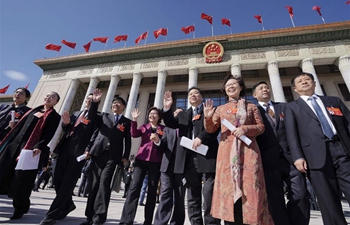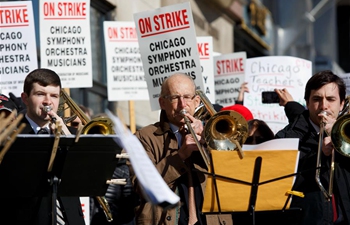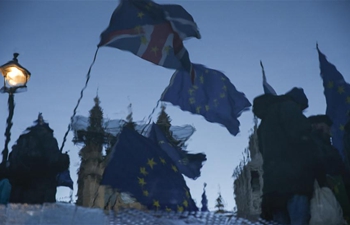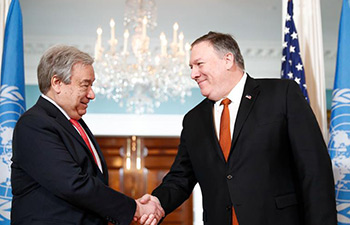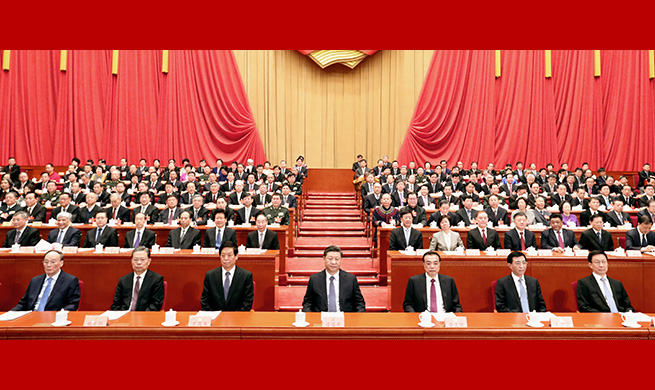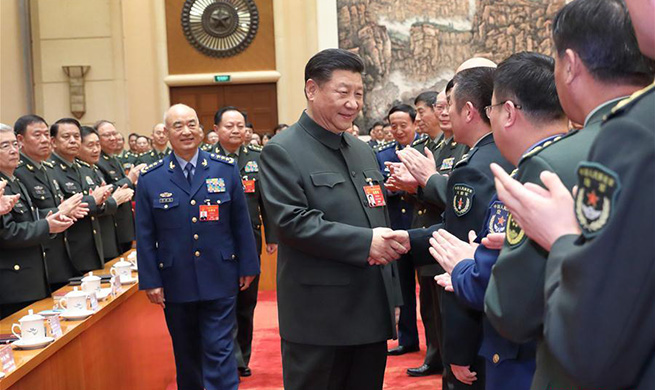by Larry Neild, Jin Jing
LONDON, March 14 (Xinhua) -- When it comes to the so-called Irish border issue, there is "fundamental tension" caused by the desire to have greater control over the border, yet allowing a complete total open border for part of Britain, Professor Thom Brooks, a leading expert in immigration law and policy, told Xinhua.
The EU has insisted that a so-called "backstop" is necessary as a way of ensuring there will be no hard border between British-controlled Northern Ireland and the Irish Republic if no permanent trading deal is reached.
Many politicians in Britain fear that implementing the backstop provision at some stage could lock Britain into indefinitely having to follow EU rules on customs and trading.
"I haven't heard a good explanation from anyone who thinks no deal is a good idea, or those who are for Theresa May's plan, as to how Britain can get greater border security as a sovereign country outside the EU, but with a complete open border with a country that is no longer aligned with Britain in a wider immigration context," said Brooks, who is a professor of law and government and the dean at Durham University's Law School.
He said that as an immigration expert he reminded anyone willing to listen that he had highlighted border and immigration issues from day one.
Immigration control and border security was one of the main reasons why many people in Britain voted in the 2016 referendum to leave the EU, according to Brooks.
"There was this worry about immigration being too much, and that Brexit gave more power to limit immigration to the UK, so people wanted more control over this," he said.
By far, the complexity surrounding the border "remains one of the big issues for the British public.
Some people say they can square it. But Brooks noted: "I can't see how, and those who think it's not a problem don't understand how any of it works."
British Prime Minister Theresa May had made a last-minute dash Monday to Strasbourg, France, to hold talks with European Commission President Jean-Claude Juncker.
It was her hope that the outcome of the talks could enable her to present an amended deal to members of the parliament. But the parliament on Tuesday overwhelmingly rejected May's Brexit deal, throwing the country's Brexit process into further chaos.
The big stumbling block to the deal was still the question of a backstop to ensure there was no return to a hard border between Northern Ireland and the Irish Republic.
"We would need a delay to Brexit. We wouldn't be able to do it by the 29th of March," said Brooks
" I think it's very likely the EU would welcome an idea that might see Britain stay, because we could vote to stay in, or to choose a deal that they had approved of," said Brooks.
"Whether or not Brexit is delayed, or does happen or is prevented, the question about whether or not staying or leaving is a good thing, this debate is going to continue for some time," said Brooks.
(Zhang Jiawei and Zhang Dailei also contributed to this story)
